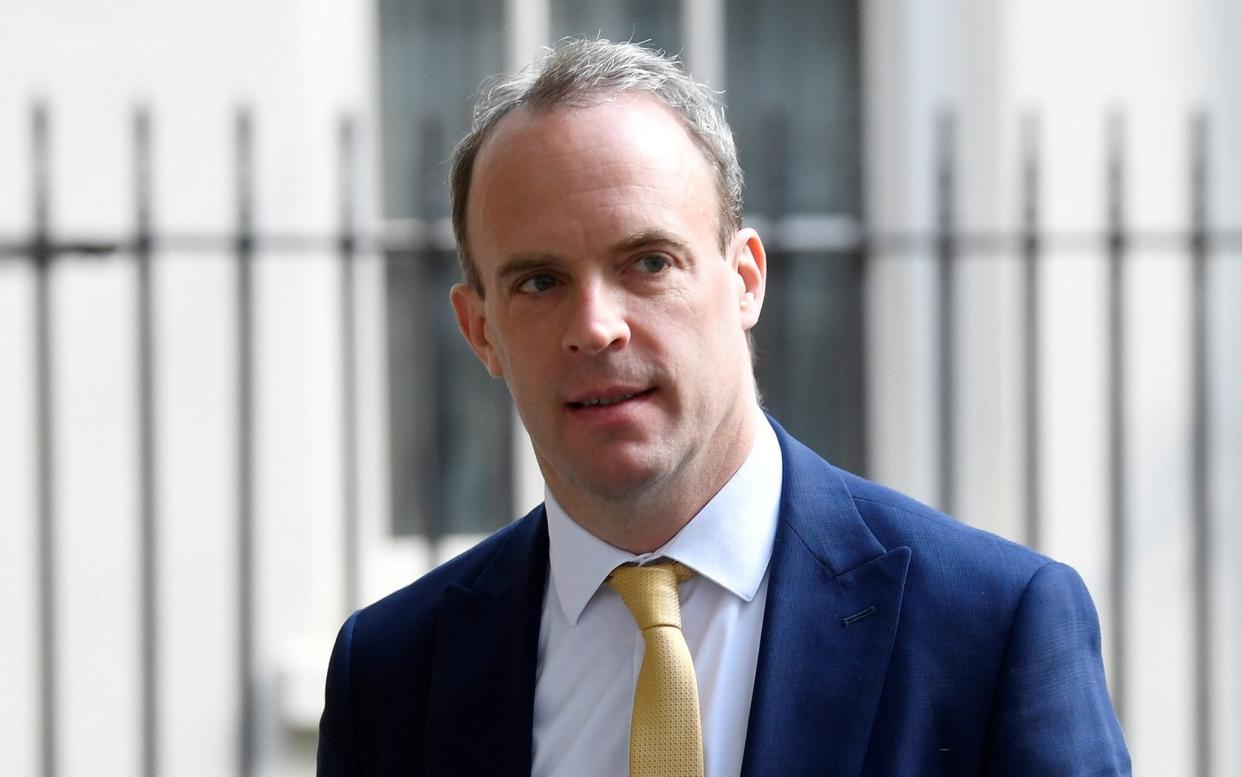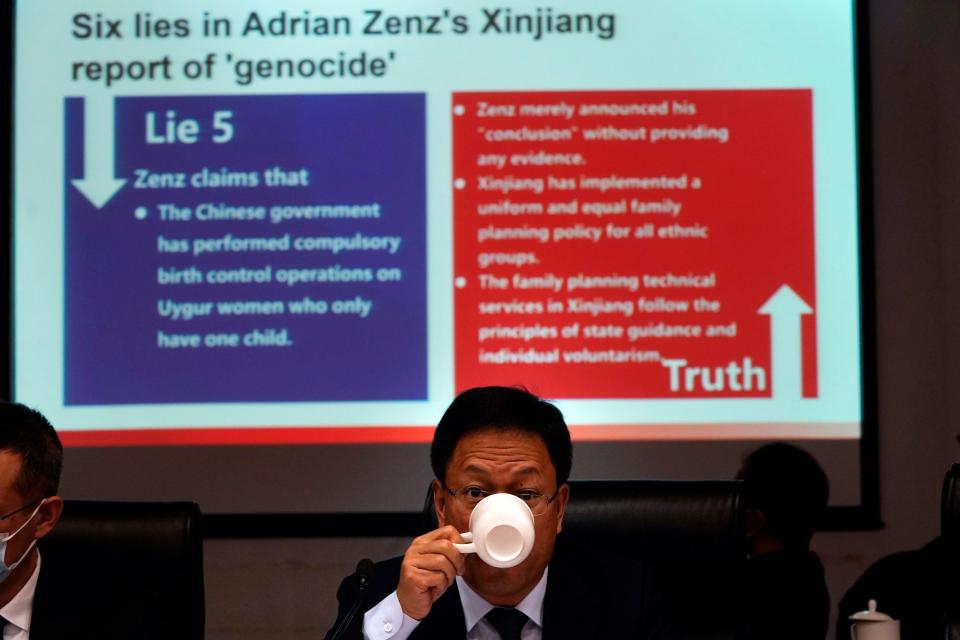Britain tightening laws on imports linked to Chinese human rights abuses

Britain is to tighten the law on importing goods linked to alleged human rights abuses in China as ministers take a tougher stance on Beijing.
Dominic Raab, the Foreign Secretary, will on Tuesday make a statement in the Commons on the Government’s response to forced labour in Xinjiang, the northwest Chinese region that is home to around 12 million Uighur Muslims.
The Government is expected to unveil a raft of measures, including expanding the Modern Slavery Act, in response to concerns that items manufactured under duress by the Uighur Muslim minority may be entering the UK.
Heavier fines for companies that breach the terms of the legislation are understood to be under consideration, along with new due diligence criteria that oblige firms to ensure nobody in their supply chain has been part of a forced labour transfer scheme.
Stronger requirements will be highlighted for public sector procurement, amid fears certain local authorities are acquiring items linked to rights abuses. The Chinese province of Xinjiang is expected to be named specifically in legislation.

Tougher export controls on British goods and technology to China that could be used for repression are among measure being looked at by ministers, it is understood.
However, the Government's programme of measures is expected to stop short of levying sanctions on individual Chinese officials responsible for alleged human rights abuser.
Growing evidence from campaign groups suggests that more than a million Uighur men have been forced into “re-education camps”, many of which appear from satellite imagery to house factories, while Uighur women have been forcibly sterilised.
On Wednesday, the Conservative Human Rights Commission will add to the body of research with a report that accuses the Chinese regime of torture, slave labour, surveillance, forced televised confessions, and arbitrary disappearances and detention, including in relation to the Uighurs.

It has been endorsed by a series of senior Conservative figures, including former Tory foreign secretaries Lord Hague of Richmond and Sir Malcolm Rifkind, the last governor of Hong Kong Lord Patten of Barnes, and the Commons Foreign Affairs Committee chairman, Tom Tugendhat.
Accusing the Chinese Communist Party of “mendacity, brutality, inhumanity, insecurity and criminality”, the report calls for a “co-ordinated, comprehensive review of UK-China policy”.
Conservative MPs have welcomed Mr Raab’s plans to tighten the law, but also urged him to go further. Sir Iain Duncan Smith, former Tory leader and co-chairman of the Inter-Parliamentary Alliance on China, called on ministers to use new “Magnitsky” powers to sanction Chinese individuals involved in repression.
He told The Telegraph: “The Foreign Office is petrified of upsetting the Chinese. The Government must show moral leadership, do something for the right reason even when it may mean less trade.”
Sir Iain and fellow Tory MP Nus Ghani, a former minister, are set to spearhead an amendment to the Trade Bill later this month that would hand English courts a role in deciding if countries were guilty of human rights abuses before trade deals were signed.
The Government is understood to be resistant to English courts becoming involved in determining genocide overseas, with insiders arguing it is the role of the International Criminal Court.
Relations between London and Beijing have become increasingly strained over humans and civil rights abuses in recent months.
Last week, Mr Raab accused China of having “deliberately misled the world” over the purpose of a draconian national security law imposed on Hong Kong after 53 pro-demoracy activists were arrested, a move he branded a “grievous attack” on the territory’s rights and freedoms.
The Foreign, Commonwealth and Development Office (FCDO) is trying to walk a tightrope on its China policy. Ministers are balancing taking a stand against Beijing over its behaviour towards the Uighurs and Hong Kong, with maintaining relations with an economic superpower that has growing geopolitical clout.
British officials working on China have sought to keep the new export controls linked to human rights abuses distinct from wider policy work on the counter proliferation of arms held by Beijing, according to sources.
A spokesman for the FCDO said: “Our approach to China is rooted in our values and interests. However, where we have concerns, we raise them and hold China to account."

